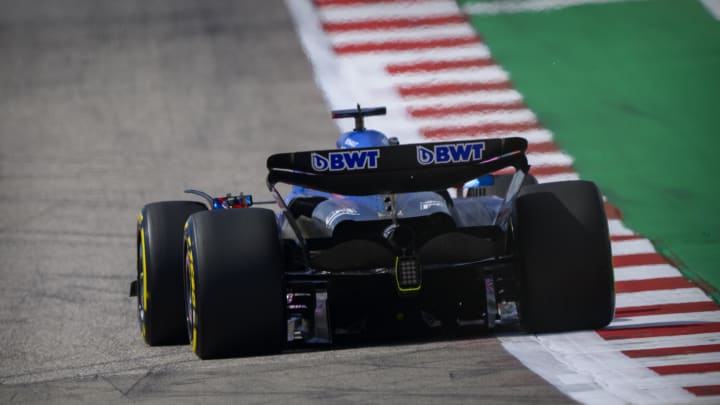F1 News: Renault Factory Engineers Speak Out As Alpine Engine Project Ends - 'Stab In The Back'

According to the French media, the engineers working toward the development of the 2026 Formula 1 power unit, called out Renault for the "betrayal" after outgoing Alpine F1 team principal Bruno Famin revealed that the parent team was canceling its F1 2026 engine project.
Famin has confirmed plans to halt Renault’s F1 activities and transition to a customer engine supply model starting in 2026. This means that the Renault Group’s engine manufacturing program at its Viry-Chatillon facility will cease producing F1 engines and instead source engines from other suppliers within the sport.
At a press conference before the Belgian Grand Prix, Famin announced his departure from leading the Alpine F1 team and revealed that a proposal had been made to the staff representative at the factory to reassign personnel to other projects, indicating Renault’s intent to withdraw from F1 as a power unit manufacturer. He told the media:
“We have presented a project, the project is not the power unit.
“The project is much much bigger than that. It’s a transformation project at the level of the Alpine brand.
“Alpine is developing as a huge project of development with seven new models in the coming years with high-end technology. It’s very ambitious to build this new sporting brand and to make it known outside of France everywhere in the world.
“The project which has been presented, at the beginning of the week, to the staff representative in Viry-Chatillon is to reallocate the resources from one side to another – one side being the development of the Formula 1 power unit, which is already being made in Viry – to dedicate those resources and skills to developing new technologies for the new products of the brand.
“One of the consequences of this project, if it’s accepted, would be for the Alpine F1 team to buy a power unit instead of developing its own power unit and then, we’ll have more resources to develop the brand and a different power unit to race with for the Formula 1 team.”
As the conversion process at Viry-Chatillon gets underway, Famin has also addressed concerns about potential intervention from French labor unions that could block Renault's decision to end its F1 engine program. He guaranteed that every employee would be reassigned to a new job, though he acknowledged that the transition would be challenging. He added:
“No, I don’t expect any delay. The process will take some weeks and it will be quite fast anyway.
“We are following all the mandatory steps and there is no reason not to make it properly. A very important thing in the project which has been presented: every single employee will be offered a job.
“There is no redundancy at all. And we are doing everything to make potentially, because again, it’s still a project, but if it’s confirmed, to make a very difficult moment as less painful as possible.
“But we know it’s never easy, this kind of thing.”
The decision now rests with the union representatives, who must choose whether to accept or reject the proposal. Meanwhile, the initial reactions from the 250-member staff have been one of shock and betrayal. Speaking to French publication L’Equipe, as reported by PlanetF1.com, union rep Karine Dubreucq said:
“We didn’t see it coming.
“It’s a stab in the back, a betrayal. We developed engines here that were capable of becoming F1 champions twelve times over, and now we can’t? They didn’t even wait for the first run on the test bench.”
Despite the shift in focus, the development of the 2026 F1 power unit remains active, with sources revealing that performance figures are meeting or surpassing the set targets. One specialist has indicated that the engine could match Mercedes' performance, with only a potential 15-horsepower difference at worst, thanks to a complete redesign of the turbo.
Although some staff have already begun taking sick leave, work continues, driven by the belief that halting now could mean the end of Renault's F1 engine presence. A source cautioned, “We might not be able to start the cars,” while another warned, “If we stop now, we’ll never see a Renault engine in F1 again.”
A management meeting reportedly took place on Wednesday to discuss the transition of the site, focusing on adapting to a shift towards hydrogen power for Groupe Renault’s future activities.
